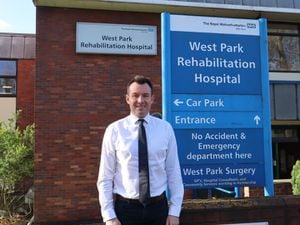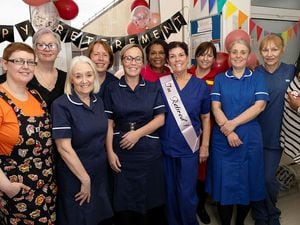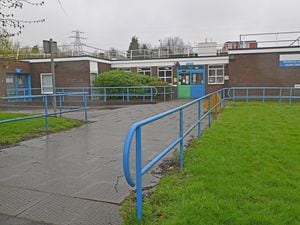Child poverty rises across Black Country and Staffordshire
Child poverty has risen across the Black Country and Staffordshire over the last four years, new analysis reveals.

The End Child Poverty coalition, which commissioned the report showing almost a third of children across the UK live below the breadline, said families were already on a "cliff edge" before the coronavirus pandemic.
The research combined recent figures from the Department for Work and Pensions (DWP) with local housing costs to produce new estimates for low-income families – those earning less than 60 per cent of the median income.
The analysis shows 39.1 per cent of children aged 16 and under in Wolverhampton were living in families with low-incomes in 2018-19 – compared to 33.6 per cent in 2014-15.
In Dudley the figure was 35.6 per cent compared to 31.8 per cent in 2014-15, in Sandwell it was 40.4 per cent compared to 33.7 per cent, over in Walsall it was 39.1 per cent compared to 33.6 per cent, and 23.9 per cent to 22.9 per cent in Stafford.
The report is based on DWP data from March, and estimates of the effect of housing costs on poverty rates by Loughborough University's Centre for Research in Social Policy.
In Wolverhampton, the number of children in low-income families rose from 17,289 in 2014-15, to 21,655 last year.
In Dudley, the figure rose from 19,075 in 2014-15, to 22,100. In Sandwell it rose from 23,437 to 29,915, in Walsall it went from 19,282 to 23,954, and in Stafford it rose from 5,073 to 5,546.
The coalition is calling on the Government to recognise the scale of the problem and its impact on children’s lives.
Ambitious
Across the UK, the proportion of children in low-income families rose from 28 per cent to 30 per cent between 2014-15 and 2018-19.
Anna Feuchtwang, chair of ECP, said: "The children affected are on a cliff edge, and the pandemic will only sweep them further into danger.
"An ambitious plan to put this shameful situation right would be transformational for millions of children."
ECP are calling on the UK Government to uprate housing assistance in line with inflation, abandon the "unconscionable" planned cuts to Universal Credit, end the benefit cap and the two-child limit on benefits, and increase child benefit.
A DWP spokesman said there are 100,000 fewer children in absolute poverty than in 2009-10, which is a measure against median income in 2011 rather than the current level.
He added: "Making sure every child gets the best start in life is central to our efforts to level up opportunity across the country.
“We have already taken significant steps to do this by raising the living wage, ending the benefit freeze and injecting more than £9.3 billion into the welfare system to help those in most need.”
A Walsall Council spokesman said: "Walsall Council is committed to reducing child poverty in the borough as well as providing timely support those that need it.
Role
"Current rises in regional and national figures will also reflect wider external factors including the current pandemic - and Walsall Council is reactive to any changing circumstances that may impact on the lives of children and families."
Councillor David Vickers, deputy leader of Dudley Council, said: “Dudley Council works with many organisations to reduce the impact of poverty on children’s lives and it is one of our key priorities to facilitate opportunities for all our children and young people.
“We all know the very best way to reduce poverty is to increase job opportunities and wages and that is why Dudley Council is playing a central role in a range of major developments across the borough, including the Metro extension, which will boost our economy and lead to the creation of new jobs.”
Deputy leader of Sandwell Council Councillor Maria Crompton said: “As a council we work incredibly hard with our partners in the voluntary sector to support families in a number of ways – through our network of children’s centres, free nursery hours to help parents to work, assisting people to claim the benefits they are entitled to, help with budgeting, putting people in touch with supportive community groups and helping people find jobs and training.
“The Covid-19 pandemic has added to the challenges for families.
"The council and our partners have been working especially hard throughout the pandemic to provide support to families who are struggling with a change in their circumstances.
“We’ve seen a 17.5 per cent increase in the number of children who are eligible for free school meals since March as more families are claiming Universal Credit."





